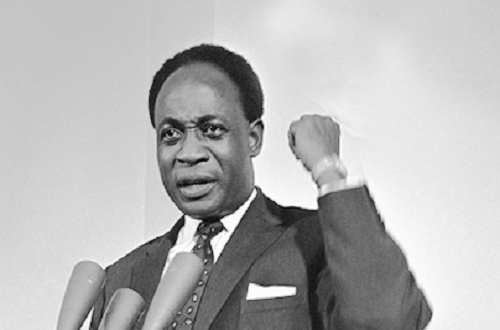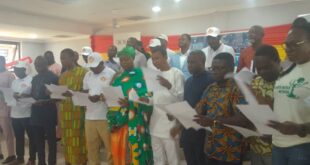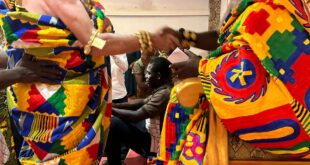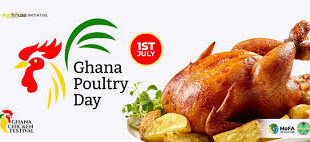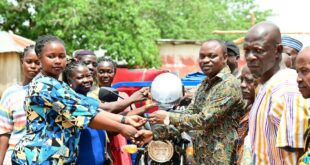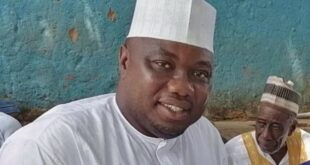Ghana’s first president and pioneering pan-Africanist, Kwame Nkrumah, dealt a notable blow to the British Empire when he led the campaign demanding self-rule for the African countries known as British colonies.
His great gift was that he was able to diagnose Africa’s predicament, understand the oppressive forces working against the continent’s interest and crucially prescribed solutions to overcome the oppression.
His strong resistance against colonialism and imperialism, as well as, neocolonialism is well documented.
A Postdoctoral Research Fellow at the Hong Kong Polytechnic University, Mark Nartey has observed how Nkrumah used metaphor in his speeches to rally people to his cause and making the issues relatable to them.
Metaphor being the use of language that conceives one thing in terms of another, Nartey submits Nkrumah not only used metaphor for a literary or stylistic effect, but also used it for ideological purposes making him a leader with a persuasive force.
According to him, studying Nkrumah’s speeches on African independence, he found that he used metaphor to articulate a strong resistance against colonialism and imperialism, adding he did it in a way that inspired confidence in his leadership, boosted the morale of Africans and empowered them for sociopolitical action.
“Using metaphor, he constructed heroes and villains, protagonists and antagonists. At the same time, he portrayed himself as a valiant leader and a noble revolutionary. And he vilified and demonised the systems and people he saw as the enemies of Africa, in a way that advanced his sociopolitical goals,” he added.
In a speech delivered to African heads of state, Nkrumah said:
For my part, I must say that as long as I live, and as long as any little vestige of colonialism and imperialism remains in Africa, I shall prosecute a ruthless war on these monsters, a war in which there shall be no truce. Colonialism and imperialism have no honour, no shame, no morals and conscience.
At the Nationalists’ Conference of African Freedom Fighters in 1962, he submitted:
This meeting gives us the opportunity also to review our strength as well as that of the enemy and to reorganize our forces and our strategy … Who is the enemy? The enemy is imperialism, who uses as its weapons colonialism and neo-colonialism.
And in his book Consciencism (1964), he stated that:
Neo-colonialism is a latter-day harpy, a monster which entices its victims with sweet music.
Speaking to government functionaries at an event in honor of President Josip Tito of Yugoslavia, he asserted that:
We see the hydra-headed neo-colonialism slowly but clearly emerging, but that ugly head should be crushed.
Nkrumah’s use of expressions such as “evil”, “enemy”, “monster”, “hydra-headed” and “harpy” to describe the brutal nature of colonialism and imperialism, the scholar observes was to invite people to take action.
He also invoked religious imagery by selecting a word like “evil” to describe the colonialists and by asserting that colonialism and imperialism have ‘no morals’.
Nkrumah also designated the colonialists as the “enemy”. This established a moral order and created a sense of solidarity. Combining the word “enemy” with expressions such as “forces”, “war”, “prosecute” and “crush”, he portrayed Africa as the battlefield and Africans and the colonialists as opposing armies.
Additionally, he associates the colonialists with “monsters”, thereby casting them in the mold of tormentors and vampires who were sucking the life out of Africa. This made them a threat that needed to be nullified.
Nartey gleans from Nkrumah’s speeches that unlike other politicians, he was direct and explicit ultimately contributing to making him one of the most powerful voices on the continent.
Little wonder then that 20 years ago, BBC’s African listeners voted him as Africa’s Man of the Millennium.
Nkrumah’s government was overthrown by local collaborators and CIA agents on February 24, 1966 while on a trip abroad. After his overthrow, he lived out his life in Conakry, Guinea. He was diagnosed with prostate cancer in August 1971 and flown to Romania for treatment. He died in Bucharest, Romania on 27 April 1972 aged 62.
Source: face2faceafrica.com
 Home Of Ghana News Ghana News, Entertainment And More
Home Of Ghana News Ghana News, Entertainment And More
